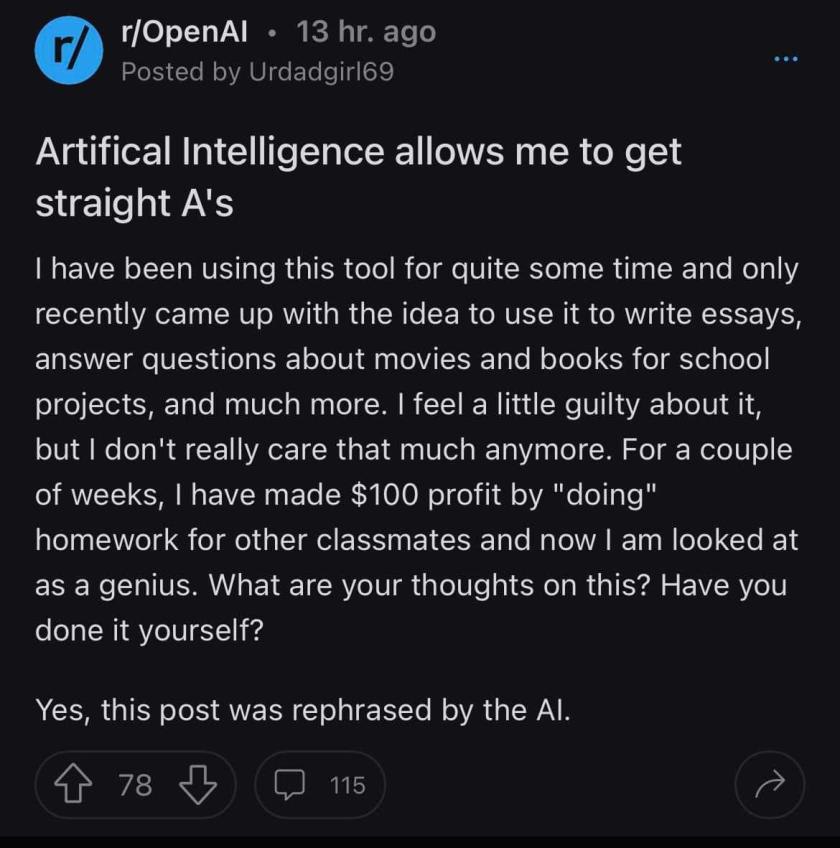In modern society, many find meaning and fulfillment from their work and careers. I, for one, certainly get enjoyment from a productive day's work.
As a software engineer, I've benefited greatly from GPT-3. I estimate that I'm 5-10 times more productive on a large range of tasks. Beyond predicting lines of code, I actually use GPT-3 as a pseudo-search engine for things I haven't committed to memory. For example, I'll write a comment saying "add entry to database", and GPT-3 will effectively 'look-up' the solution, so I don't have to switch tabs and search it myself. I'm also learning like never before. By prompting GPT-3 via a code comment, I get instant, tailored solutions to my specific problem in new languages or with new tools that I've never used before. This saves me hours of reading general purpose tutorials and debugging to get the working code that I need.
I genuinely feel superhuman, and this boost in productivity lets me focus on more creative aspects of the work (e.g. designing the solution to a problem). In short, I've never found coding so satisfying. Unfortunately, I suspect this is a temporary 'sweet-spot' that won't last forever. Given how powerful the technology already is, with a few months or years of progress I might soon feel like I'm not really contributing to the work at all.
High-school students are using GPT-3 to write essays, and no doubt it's already in use within academia.
As technology automates human labor, history tells us that we'll simply create new jobs in industries and careers not yet imaginable. How could 19th century agriculturalists have foreseen careers in web design? In the case of artificial general intelligence, however, this repeating pattern could be broken. What happens when AI also performs those new jobs better than us?
Will we use all this free time for leisure and enjoyment, or will we struggle to find meaning and fulfillment outside of work? This is not necessarily a new question, for it is exactly the challenge of those who retire (and remain in good health). It is, however, something that we'll need to ask on a larger scale than ever before.
My proposed solution is to promote education and skills in the arts. This will open up creative outlets and hobbies for individuals, which may be essential to maintaining fulfillment and satisfaction in the long-term. Alongside this, one can imagine a reinvigorated prioritization of community, social skills, family, sports, and more.
I would love to see some discussion of these points, and whether promoting the Arts could be a legitimate goal for long-termists. Comments are welcome, but I've also started an AI Safety Discord community to facilitate more 'real-time' discussions. Feel free to join here: Safe AI Discord Community.
--
Of course, this all optimistically assumes we produce safe and aligned AI in the first place...


Speaking personally, I'm a non-professional pianist and as much as I enjoy my professional work, I get a whole other kind of satisfaction and fulfilment from making music. It's an opportunity to express myself, and to connect with others I play with. When I go long without music, I start losing my mind - it's like having pent up, repressed feelings that you can't let out.
So while I always know professionals can do a better job than me playing whatever piece I'm trying to play, art is still a major part of how I give meaning to my life.
In analogy, I really agree that art could be an outlet that would let people feel life is meaningful, even when AI does it better than them.